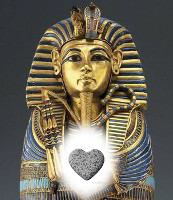Earlier this month I spoke at the annual conference of the Conditional Immortality Association of New Zealand, on divine holiness and hell. Defenders of the doctrine of eternal torment sometimes assure us that eternal torment in hell is necessary because God is very, very holy. But a biblical theology of God’s holiness actually offers no support at all to this view on hell. In fact, God’s holiness as depicted in the Bible offers more support for the doctrine of annihilationism – the view that God will finally remove all evil and those who commit it from creation. If you have 25 minutes to spare, take a listen!
Tag: theology Page 1 of 2

Based on the evidence currently available, we should view Pope Francis as an annihilationist, and attempts from within the Vatican to downplay this fact are unconvincing. The current Pope does not believe the doctrine of eternal torment, affirming instead the biblical doctrine of conditional immortality: That the saved will have eternal life, but the lost will not live forever – not in hell or anywhere else.

This is part two of a series on “speaking in tongues.” In part one I looked at the idea that there’s an angelic language, and those who speak in “tongues” might be speaking in the language of angels. There really wasn’t any good evidence that St Paul thought that way. However, most of what he wrote about speaking in other languages appears in 1 Corinthians 14, so that’s where we’re going to look in this article. I’m going to walk through part of that chapter here. Some people think that St Paul described speaking in tongues as the gift of speaking in a spiritual language that we do not understand, as a way of building ourselves up spiritually. Those who think this way, I maintain, need to read Paul a bit more carefully.


If St Paul’s first letter to the Corinthians is all true, then premillennialism is false.
My non-religious readers may have no idea what I’m talking about. I can sympathise. I think (but I could be wrong) that this might be the first time I have ever written about this subject at the blog. I stopped thinking about arguments over things like the “millennium,” the “rapture,” the “great tribulation” and the like some time ago. It’s interesting in a way, don’t get me wrong, but after thinking about theology for some years now those things just feel like they belong in the toybox of Christian theology. That’s not to say there are no truths associated with them, it’s just that they remind me so much of sensational books and relatively pointless squabbles between seminary men in tweed jackets with patches on the elbows in journals like Bibliotheca Sacra in the 70s and 80s (not that I was around when these things happened – I was born in 1975). And yet, it’s a serious subject within Evangelical theology and deserves to be taken seriously when coming to terms with Evangelical theology.
The subject of premillennialism was raised in a recent discussion, and I made the comment that I think St Paul’s view expressed in the first letter to the Corinthians (chapter 15), if true, would rule premillennialism out altogether. Somebody asked me why I thought this, and here you are, reading my answer. I’ll unpack the terminology as we go.
 Back on the 9th of February 2013, Tom Wright and James White discussed / debated the issue of justification in the writings of St Paul on the Unbelievable? Radio show, hosted by Justin Brierley. The discussion was titled What did St Paul Really Say? Thanks to the efforts of my friend Roy Soliman who transcribed this, the transcript of that discussion is now available here at Right Reason.
Back on the 9th of February 2013, Tom Wright and James White discussed / debated the issue of justification in the writings of St Paul on the Unbelievable? Radio show, hosted by Justin Brierley. The discussion was titled What did St Paul Really Say? Thanks to the efforts of my friend Roy Soliman who transcribed this, the transcript of that discussion is now available here at Right Reason.
The transcript is in the articles section.
And you can listen to the episode over at Unbelievable?
Enjoy!

“If Jesus Christ be God and died for me, then no sacrifice can be too great for me to make for Him” ~ C. T. Studd
“Amazing love! How can it be, That Thou, my God, shouldst die for me?” ~ Charles Wesley
“Being the followers of God, and stirring up yourselves by the blood of God, you have perfectly accomplished the work which was beseeming to you.” ~ Ignatius of Antioch
“Pay careful attention to yourselves and to all the flock, in which the Holy Spirit has made you overseers, to care for the church of God, which he obtained with his own blood.” ~ St Luke, Acts 20:281
If Christianity is true, then God died.
- Any concerns raised about the possibility that this statement in Acts should be translated as “with the blood of his own” or “with the blood of his son” can at least in part be met with the response that so many of those who would feel it improper to speak of the death of God on the cross are also those who take the translation here to be the appropriate one and who are suspicious of the alternatives as concessions to liberalism. [↩]
I’m an occasional contributor to Afterlife, a New Zealand Website exploring the questions of life, death and eternity, from an Evangelical Christian perspective. My latest article there, Can These Bones Live? The Resurrection of the Body is now available.
Is it really clear that the first Christians believed in the empty tomb of Jesus and in the resurrection of our bodies, leaving all the graves empty?
Check out the rest of the article, in which I explain that the earliest Christian community maintained that in the resurrection of Jesus, his body came back to life, setting the precedent for the resurrection of all the dead.

How can a Chalcedonian Christology avoid ending up with Christ being two people? If the divine logos (the second person of the Trinity) combined with a fully functioning human body and soul (which some people take to be the ingredients of a human being), that is surely two people and not one, right?

 If the doctrine of divine timelessness is true, then it turns out – perhaps surprisingly to some people – that materialist Christology – and in particular what it has to say about the death of Jesus – is given a helping hand.
If the doctrine of divine timelessness is true, then it turns out – perhaps surprisingly to some people – that materialist Christology – and in particular what it has to say about the death of Jesus – is given a helping hand.